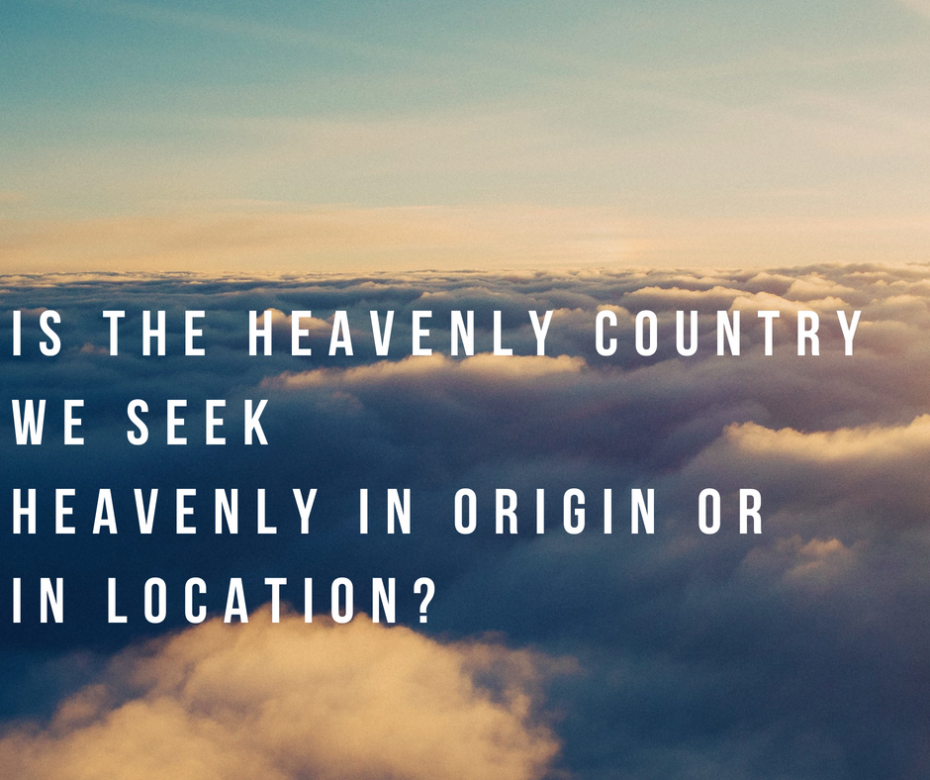I received this email question:
I have been going through the book, The Ten Most Misunderstood Words in the Bible, with my pastor and we have both enjoyed it and have been challenged by it. I have learned much about heaven from it and am excited to live again on the new earth for eternity, but I came across a passage in Hebrews 11:13-16 that seems to contradict the view of a new earth. I know it does not contradict other Scripture. Can you give me a little insight to clarify this passage? Thank you!
—North Dakota
Hebrews 11 is, of course, the Hebrew Hall of Fame, or the Hebrew Hall of Faith. The author walks through the faithful actions of OT greats like Abel, Enoch, Noah, Abraham, Sarah, Isaac, Jacob, Joseph, Moses, Joshua, and others.
Hebrews 11:13-16 is a summary statement referring to Abraham and Sarah and those who preceded them. In it the author says that “These all died in faith…they desire a better, that is heavenly country. Therefore God…has prepared a city for them.”
The reference to a “heavenly country” may seem to contradict the idea of the New Earth. It does not. The word country is not in the Greek. Abraham and Sarah desired a heavenly homeland (compare verse 14). The homeland they sought would be heavenly in origin, not in location. The Lord has prepared the New Jerusalem (John 14:1-3; Revelation 21). That city, according to Revelation 21, will be on the New Earth, not in the third heaven.
(Likewise, the Lord commanded us to lay up treasure “in heaven” in Matt 6:19-21. That is where the treasure is sourced. But that treasure will be enjoyed on the Millennial Earth and then the New Earth.)
When the author speaks of “that homeland from which they had come out of” (v 15) as not being the place they would return later, that too can be confusing. But the author was not denying that they were looking forward to life forever in Messiah’s kingdom in the Promised Land on earth.
He was probably speaking specifically about Abraham and Sarah and their original homeland (see Tanner, “Hebrews,” p. 1081, in The Grace New Testament Commentary). They did not regard Ur or Haran as their homeland. They had the opportunity to return there, yet they did not. They knew the Promised Land was to be their homeland forever (see P. E. Hughes, Hebrews, p. 478). Of course, they knew that their experience in the kingdom would be in resurrected bodies after this life and that Messiah’s kingdom would be in Israel.
Finally, note Heb 11:35 and the words, “that they might obtain a better resurrection.” All OT believers knew they would be resurrected and would take part in Messiah’s kingdom. However, some of them knew that the Lord will reward faithfulness and thus they accepted torture and martyrdom “that they might obtain a better resurrection.” The issue there was not kingdom versus lake of fire. The issue was a more abundant experience forever on the New Earth versus a less abundant experience forever (see Tanner, “Hebrews,” p. 1085; Hodges, “Hebrews,” The Bible Knowledge Commentary, p. 809).


